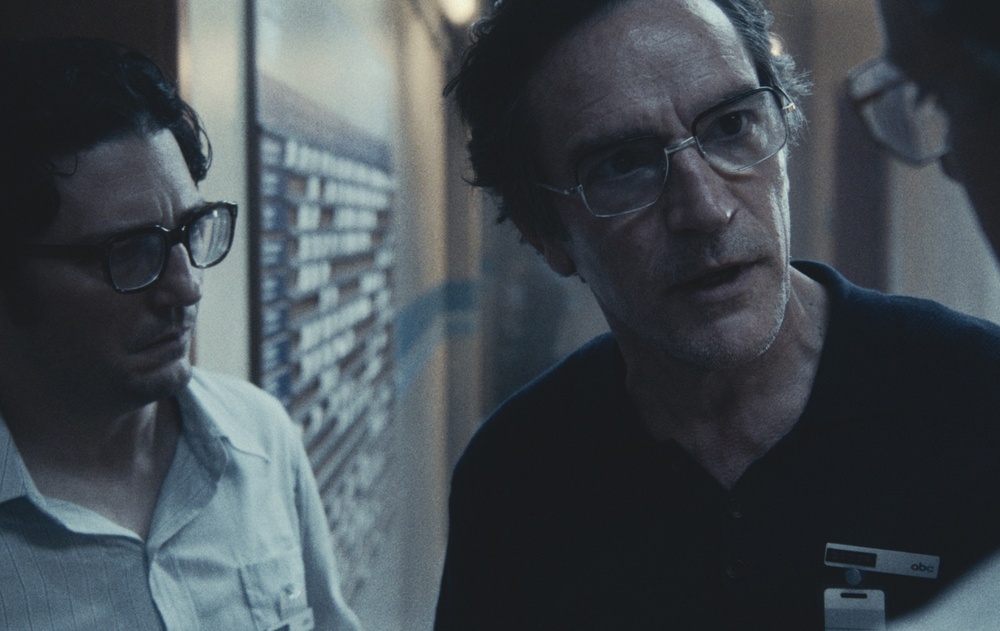September 5

John Magaro, Ben Chaplin, and Peter Sarsgaard star in SEPTEMBER 5. (Photo: Paramount)
Within the tragic true-life saga on its titular date, September 5 spotlights a gold-medal routine that reshaped the broadcast news landscape forever.
Tightly wound and fast-paced, the film provides fresh perspective on the brazen attack on Israeli hostages by Palestinian terrorists at the 1972 Olympics in Munich.
This taut and insightful drama unfolds practically in real time through the eyes of the ABC sports crew forced to transition instantly from covering volleyball and boxing to shaping the narrative for one of the most significant live news events in history.
On a relatively quiet morning of competition, inexperienced producer Geoff Mason (John Magaro) hears gunshots from the Olympic Village. With sociopolitical tensions already running high and the host nation trying to repair its image on the international stage, Mason senses something big and calls in executive Roone Arledge (Peter Sarsgaard) on his day off.
Arledge sees an opportunity for his unit to prove itself rather than validating suspicions that they’re in over their heads, which leads to some fascinating gamesmanship between the network’s news and sports divisions.
“We’re trying to follow the story wherever it takes us,” Arledge explains just seconds before they go live amid the chaos. While he works the phones to negotiate, Mason scrambles and schemes to get the best camera angles or to embed moles into restricted areas, such as a translator (Leonie Benesch) who agrees to report from the field.
Along the way, they inadvertently and dangerously become part of the story. Like them, the film balances the logistical responsibilities of breaking-news coverage with the emotional gravity and moral complexity of the situation.
Mixing in archival footage with appropriate period aesthetics, director Tim Fehlbaum (The Colony) provides a behind-the-scenes glimpse into a control room during a pivotal time for incorporating technology into live news, but also in an era of intense competition between rival networks for eyeballs and journalistic scoops.
Viewing it through a contemporary lens offers a compelling contrast to the overbearing nature of the 24-hour news cycle and social media — without overtly judging how the way we consume news has changed for better or worse.
The performances are strong, even if screenplay doesn’t leave much room to develop characters beyond their roles in the moment.
Regardless of how much moviegoers recall about that fateful day, September 5 details a vivid and intense story of courage and perseverance that deserves some airtime.
Rated R, 94 minutes.